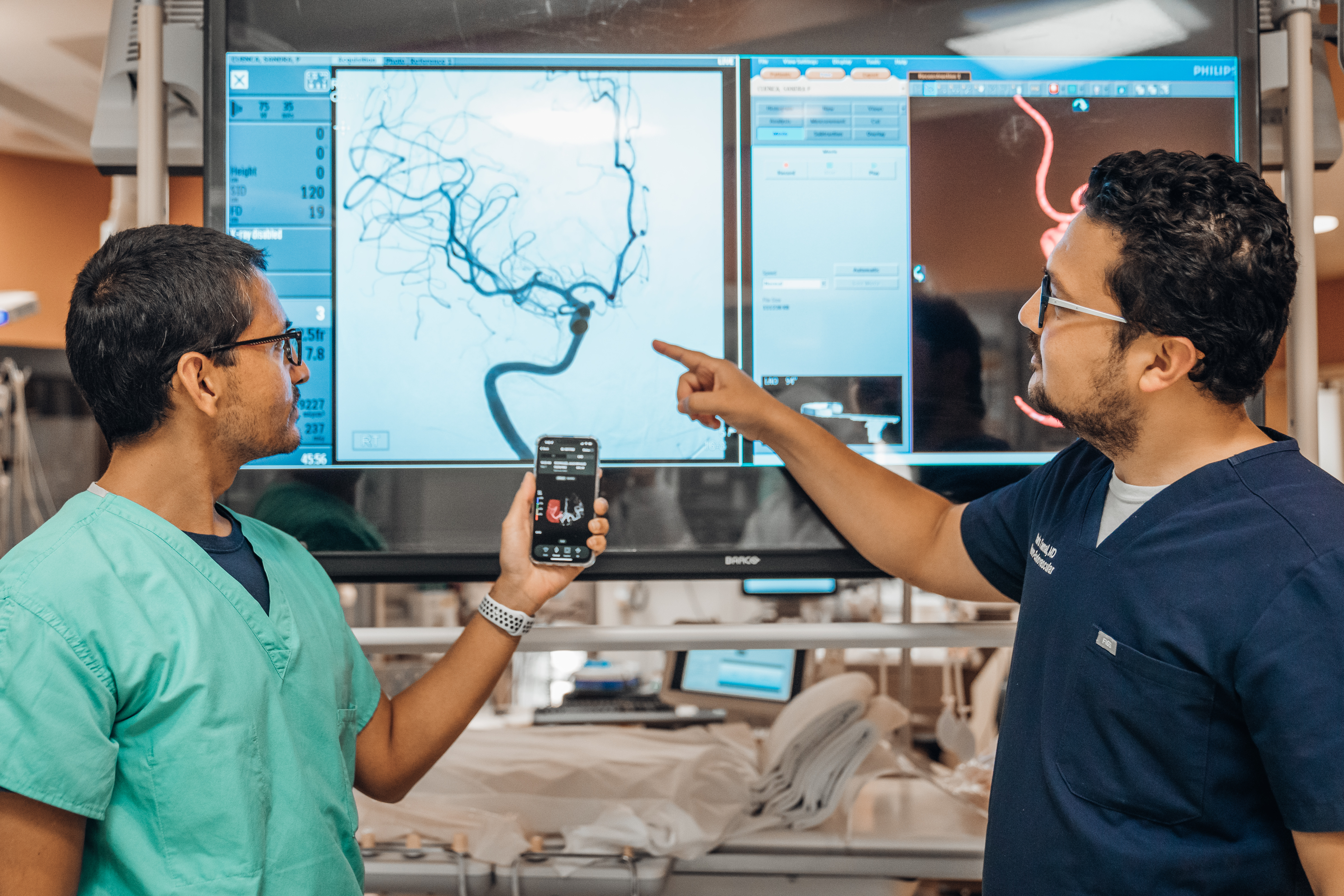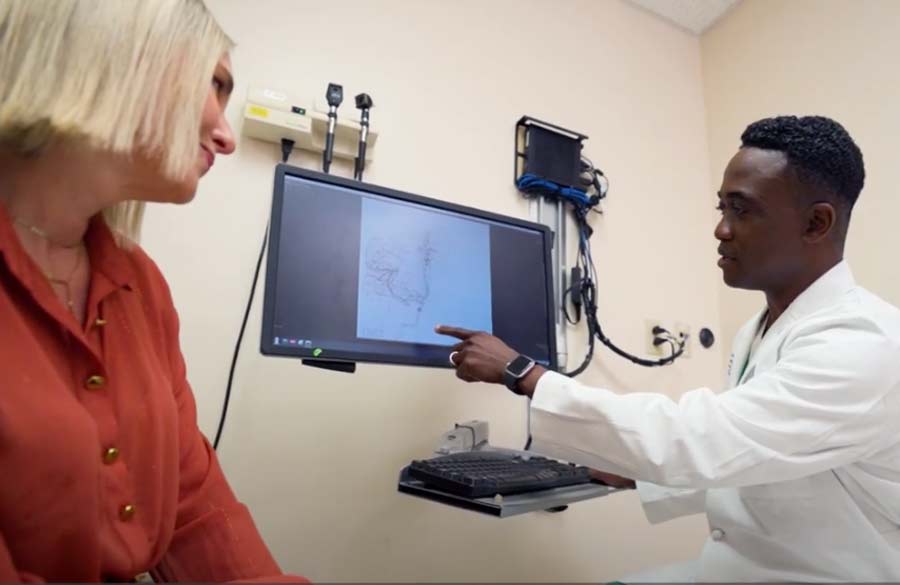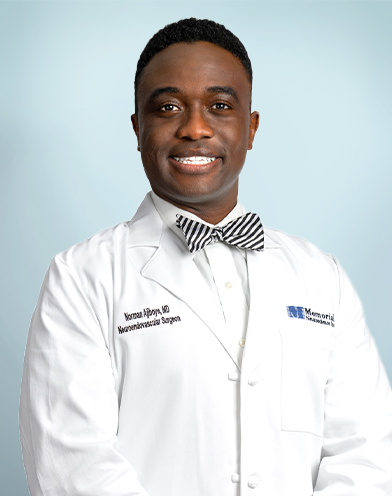
Neurointerventional Surgery
Our surgeons perform advanced minimally invasive procedures to help patients get back to their lives and families.
Neurointerventional surgery treats conditions that affect blood vessels in the brain and spine (cerebrovascular disease). Other names for neurointerventional surgery include endovascular neurosurgery, interventional neuroradiology and neurointerventional radiology.
We combine extensive expertise and compassionate care to deliver exceptional safety, quality and patient outcomes.
Cerebrovascular Diseases We Treat
Frequently Asked Questions
Compared with traditional neurosurgery, which requires open incisions, neurointerventional procedures address the issue from inside the blood vessels (endovascular) and are minimally invasive. Neurointervention can also be used to diagnose a neurological issue.
In general, we use neurointerventional procedures to:
- Fix a ruptured blood vessel
- Remove a blockage from a blood vessel
- Stop blood flow through abnormal blood vessels
- Support a weak area of a blood vessel to prevent a rupture
In neurointerventional surgery, the surgeon inserts a thin tube (catheter) into a blood vessel in your wrist or groin. Then, they thread the catheter to the problem area. The surgeon passes small tools and devices through the catheter to perform precise procedures. Medical imaging technology in the operating room guides the surgeon.




Neurointerventional Surgery: Why Choose Memorial Neuroscience Institute?
When you come to us for care, you’ll find:
- Leading expertise: Our neurointerventional surgeons perform a high volume of procedures. This level of experience is not often found in community health systems. Meet our team.
- Multispecialty collaboration: Neurointerventional surgeons work closely with specialists in neurology, neurosurgery, neuroradiology, neurocritical care, neurorehabilitation, radiation oncology and vascular surgery. Together, they ensure you receive comprehensive care before, during and after surgery.
- Advanced technology: Our neurointerventional surgery suites (catheterization labs) are equipped with state-of-the-art technology. We also have access to the latest endovascular devices and blood vessel-blocking agents, including some available only through clinical trials.
- Faster recovery: Compared with open surgery, endovascular procedures typically have a lower risk of complications and faster healing time. When possible, we use an artery in your wrist as the access point for surgery. There’s less downtime with this approach than entering through an artery in your groin. You can stand up as soon as the anesthesia wears off.
- Exceptional stroke care across our health system: Two of our hospitals are Comprehensive Stroke Centers (the highest level) and two are Primary Stroke Centers. Our stroke treatment outcomes exceed national benchmarks for timeliness of care. Receiving rapid care is the main factor in how well patients do after a stroke.
- Personalized approach: We tailor care to each patient, not just their condition. Our surgeons include you and your family in the decision-making process to ensure your care meets your needs.
- Pediatric care: Our neurointerventional surgery team works closely with pediatric neurosurgeons at Joe DiMaggio Children’s Hospital to treat AVMs and aneurysms in children.









